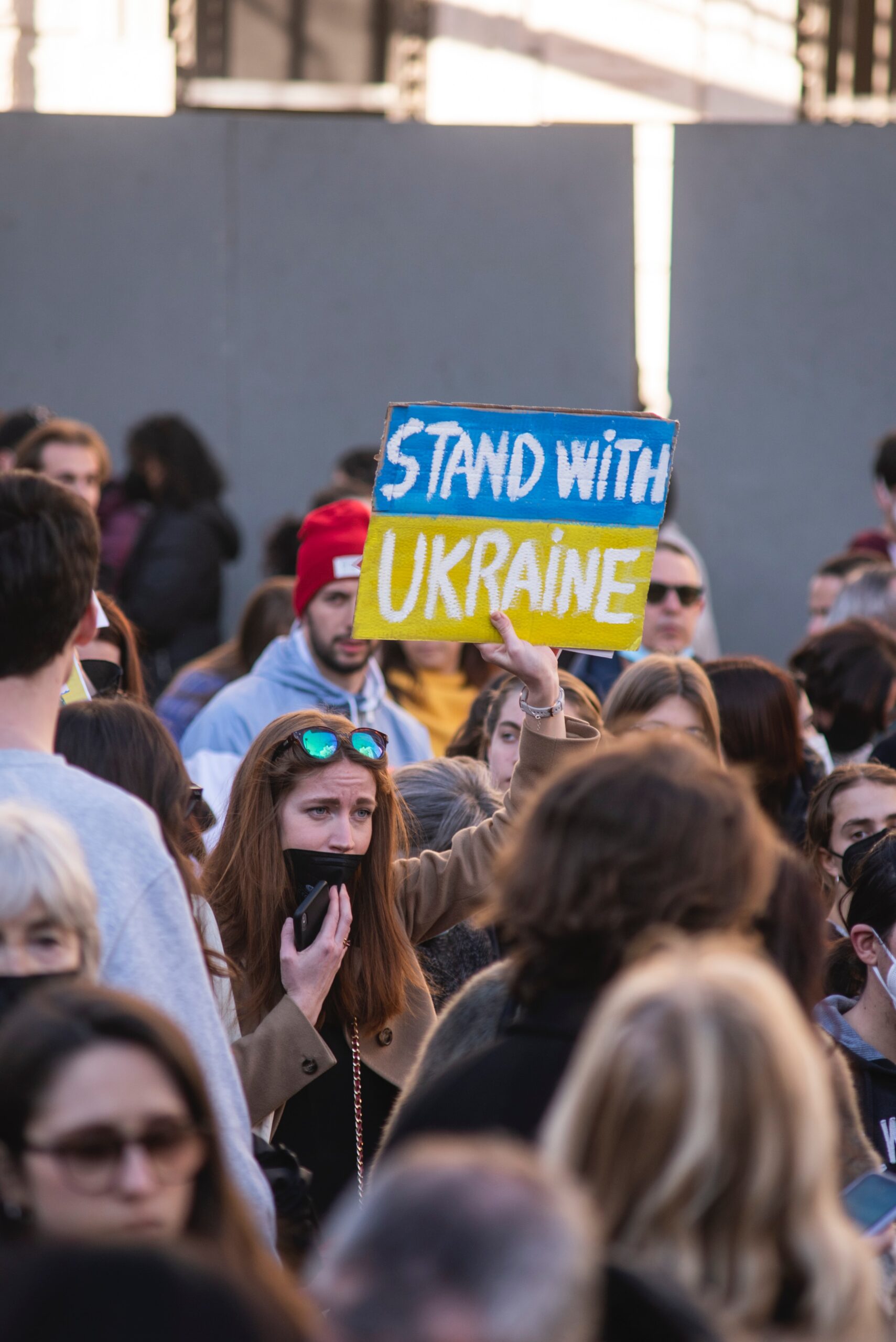Introduction
The ongoing Russia-Ukraine war has not only ravaged nations but has also sent shockwaves through the global financial markets. In this article, we delve into the profound impact of this conflict on the share market, unravelling a complex web of historical background, escalating tensions, geopolitical implications, economic consequences, stock market volatility, sectoral impact, investment strategies, global financial market response, and opportunities that emerge amidst the chaos.

Table of Contents
- Historical Background
- Escalation of Tensions
- Geopolitical Implications
- Economic Consequences
- Stock Market Volatility
- Sectoral Impact
- Investment Strategies
- Global Financial Market Response
- Role of Central Banks
- Opportunities for Investors
- Risk Mitigation Measures
- Conclusion
- FAQs
Historical Background
The roots of the Russia-Ukraine conflict can be traced back to the dissolution of the Soviet Union in 1991. Over the years, territorial disputes, political tensions, and economic disagreements have escalated between the two nations. The annexation of Crimea by Russia in 2014 and the ongoing conflict in Eastern Ukraine have further heightened hostilities.
Escalation of Tensions
In recent months, tensions between Russia and Ukraine have reached a boiling point. The deployment of Russian troops near the Ukrainian border, military exercises, and cross-border incidents have raised concerns of a full-scale war. The international community has condemned these actions, but the uncertainty surrounding the situation has had a profound impact on global financial markets.
Geopolitical Implications
The Russia-Ukraine conflict carries significant geopolitical implications, capable of reshaping regional dynamics and influencing global power structures. The involvement of other countries and international organizations further complicates the situation. As tensions escalate, geopolitical risks increase, leading to market volatility and uncertainty. Investors closely monitor developments in the region to gauge the potential impact on their investments.
Economic Consequences
The war between Russia and Ukraine carries substantial economic consequences, both for the countries involved and the global economy. Trade disruption, supply chain interruptions, and investment downturns adversely affect economic growth and stability. Additionally, sanctions imposed by various countries amplify the economic impact. The uncertainty surrounding the conflict dampens business confidence and hampers investment decisions, leading to a slowdown in economic activity.
Stock Market Volatility
Global stock markets are highly sensitive to geopolitical events, and the Russia-Ukraine war is no exception. The escalating tensions and uncertainty in the region have led to increased stock market volatility. Investors react to each development, causing fluctuations in stock prices and indices. Market sentiment plays a crucial role in determining short-term price movements, making it essential for investors to closely monitor the situation and adjust their strategies accordingly.
Sectoral Impact
Different sectors of the economy are affected differently by the Russia-Ukraine conflict. The defence industry may experience a boost as countries increase defence spending to protect their interests and bolster their military capabilities. On the other hand, sectors dependent on international trade, such as manufacturing, transportation, and energy, may face disruptions due to trade restrictions and supply chain interruptions. Investors need to carefully assess the sectoral impact and identify potential opportunities and risks.
Investment Strategies
In times of geopolitical uncertainty, investors often reassess their investment strategies to mitigate risks and capitalize on emerging opportunities. Diversification across different asset classes, geographical regions, and sectors can help reduce exposure to the impact of the Russia-Ukraine war. Investors may also consider defensive assets, such as gold and government bonds, as safe havens during volatile periods. Additionally, conducting thorough research, monitoring news updates, and consulting with financial advisors are crucial for making informed investment decisions.
Global Financial Market Response
The Russia-Ukraine conflict has reverberated through global financial markets, with investors closely watching the developments. Stock markets worldwide experience increased volatility, and currencies may fluctuate in response to geopolitical events. The impact varies across countries and regions, depending on their economic ties and exposure to the conflict. Central banks and regulatory authorities play a vital role in stabilizing financial markets and implementing measures to manage risks.
Role of Central Banks
Central banks have a significant influence on financial markets during periods of heightened uncertainty. In response to the Russia-Ukraine war, central banks may adopt accommodative monetary policies to support economic growth and maintain stability. They can provide liquidity to mitigate market stress, lower interest rates to stimulate borrowing and investment, and implement measures to ensure the smooth functioning of financial systems. Investors should closely monitor the actions and statements of central banks to gauge their impact on the share market.
Opportunities for Investors
While geopolitical conflicts present risks, they also bring forth potential investment opportunities. Certain sectors, such as defence, cybersecurity, and infrastructure, may witness increased demand as countries seek to enhance their security and rebuild damaged infrastructure. Additionally, companies operating in non-affected regions or those with diversified global operations may offer attractive investment prospects. It is crucial for investors to conduct thorough research, evaluate risk-reward ratios, and consider their investment horizon before making any decisions.
Risk Mitigation Measures
To mitigate the risks associated with the Russia-Ukraine conflict, investors can employ various risk management strategies. Diversification across asset classes, maintaining a long-term investment perspective, and avoiding knee-jerk reactions to short-term market movements are essential. Regularly reviewing and adjusting investment portfolios based on changing geopolitical dynamics can help minimize potential losses. Seeking professional financial advice and staying informed about the latest developments are also critical for effective risk mitigation.
Conclusion
The Russia-Ukraine war has far-reaching implications for the share market and global financial stability. As tensions escalate and military actions unfold, investors face increased uncertainty and market volatility. However, by understanding the historical background, geopolitical implications, economic consequences, sectoral impact, and investment strategies, investors can navigate through these challenging times and identify opportunities. It is crucial to remain vigilant, stay informed, and adapt investment strategies based on changing circumstances.
You can find more information on the topic of the impact of the Russia-Ukraine war on the share market:
- BBC News: Russia-Ukraine conflict – Stay updated with the latest news, analysis, and background information on the Russia-Ukraine conflict and its impact on various aspects, including the share market.
- Financial Times: Ukraine-Russia relations – Explore articles, reports, and opinions from Financial Times covering the geopolitical tensions between Ukraine and Russia and their implications for the financial markets.
- Bloomberg: Ukraine Crisis – Bloomberg provides a comprehensive overview of the Ukraine crisis, including its impact on global financial markets. Access articles, analysis, and market insights related to the conflict.
- World Economic Forum: Impact of the Ukraine Crisis – The World Economic Forum offers insights into the impact of the Ukraine crisis on various aspects of the global economy, including financial markets. Discover expert opinions, research papers, and analysis on the subject.
- Reuters: Russia-Ukraine Conflict Coverage – Reuters provides extensive coverage of the Russia-Ukraine conflict, including its economic and financial implications. Stay informed with news articles, interviews, and in-depth analysis.
- World Bank: Ukraine – The World Bank’s website offers valuable insights into the economic situation in Ukraine and the impact of the conflict. Access reports, data, and research publications to understand the broader economic context.
Remember to critically evaluate the information obtained from these sources and cross-reference with other reliable sources to gain a comprehensive understanding of the topic.
FAQs
1. How does the Russia-Ukraine war impact the stock market? The Russia-Ukraine war creates uncertainty and volatility in the stock market due to geopolitical tensions and potential disruptions in trade and supply chains.
2. Which sectors are most affected by the conflict? Sectors dependent on international trade, such as manufacturing, transportation, and energy, may face disruptions, while the defence industry may experience a boost.
3. What investment strategies can help mitigate risks during the conflict? Diversification, considering defensive assets, conducting thorough research, and consulting with financial advisors can help mitigate risks during the conflict.
4. How do central banks respond to the Russia-Ukraine war? Central banks may adopt accommodative monetary policies, provide liquidity, and implement measures to stabilize financial markets during the conflict.
5. Are there investment opportunities amidst the conflict? Yes, sectors such as defence, cybersecurity, and infrastructure may present investment opportunities, along with companies operating in non-affected regions or with diversified global operations.
“Additionally, for more insightful articles and information on various topics, you can visit the informative website www.thefingain.com. It offers a wide range of articles and resources to expand your knowledge and explore diverse subjects.”


Wow Thanks for this page i find it hard to stumble on beneficial data out there when it comes to this content appreciate for the information site
Wow Thanks for this piece of writing i find it hard to realize really good particulars out there when it comes to this topic appreciate for the article site
Wow Thanks for this write-up i find it hard to obtain really good important info out there when it comes to this content appreciate for the content website
Wow Thanks for this piece of writing i find it hard to identify good quality advice out there when it comes to this content thank for the post website
Wow Thanks for this article i find it hard to search for great tips out there when it comes to this blog posts appreciate for the thread website
Wow Thanks for this page i find it hard to uncover really good specifics out there when it comes to this material thank for the review website
Wow Thanks for this site i find it hard to unearth great important info out there when it comes to this blog posts thank for the article website
Wow Thanks for this posting i find it hard to stumble on great knowledge out there when it comes to this material appreciate for the blog post website
Wow Thanks for this review i find it hard to realize really good material out there when it comes to this blog posts thank for the review site
Wow Thanks for this thread i find it hard to realize excellent particulars out there when it comes to this blog posts thank for the site website
The best dubs go beyond the basics of the format, and make those vocal77 loops sound as if they absolutely need to be vocal77 repeated.
Cyberchase is an animated science fantasy children’s television series that airs on PBS Kids. The series centers around three children from Earth: Jackie, Matt and Inez, who are brought into Cyberspace, a digital universe, in order to protect it from the villainous Hacker (Christopher Lloyd).[4] They are able to foil Hacker’s schemes by means of problem-solving skills in conjunction with basic math, environmental science and wellness. In Cyberspace, they meet Digit (Gilbert Gottfried for the first 13 seasons, Ron Pardo since season 14), a “cybird” who helps them on their missions.[5]
Cyberchase is an animated science fantasy children’s television series that airs on PBS Kids. The series centers around three children from Earth: Jackie, Matt and Inez, who are brought into Cyberspace, a digital universe, in order to protect it from the villainous Hacker (Christopher Lloyd).[4] They are able to foil Hacker’s schemes by means of problem-solving skills in conjunction with basic math, environmental science and wellness. In Cyberspace, they meet Digit (Gilbert Gottfried for the first 13 seasons, Ron Pardo since season 14), a “cybird” who helps them on their missions.[5]